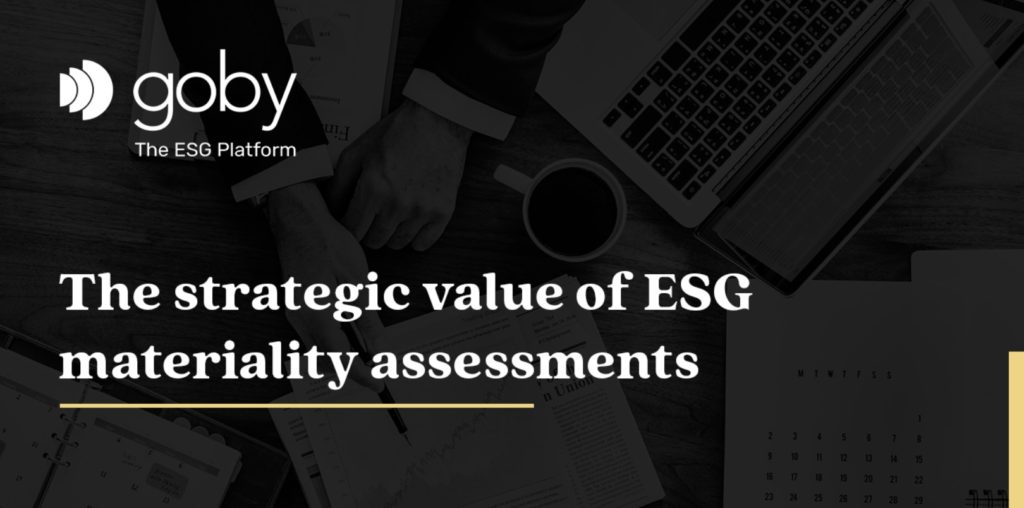Guest Post: Why Should Fund Managers Embrace ESG?
In the wake of an unprecedented year—one that faced a global pandemic, devastating environmental disasters, and distressful social outcries—it’s becoming clearer that Environment, Social and Governance (ESG) will play a pivotal role in managing the long-term success of companies and investments around the world.
ESG is becoming an increasingly useful tool for those looking to future-proof investments that can provide returns in the long-term. ESG data and metrics provide insights into the success and value of a company’s performance and policies in order to mitigate risk and identify superior risk-adjusted returns. Consequently, investor appetites for ESG focused companies are rapidly increasing.
A recent US SIF reported ESG investing strategies increased 42 percent in the last two years to $17 trillion in 2020 (up from $12 trillion at the start of 2018). And for good reason. Fund research firm Morningstar reported that its ESG-screened indexes largely outperformed in 2020 and over the last five years, while also offering more downside protection.
And, it’s not only broad-market ESG indices that are outperforming counterparts. Within all industries, from construction to health care to petroleum, companies with strong ESG profiles continue to perform better than their peers.
So, how does private equity measure up?
Private Equity & ESG Today
According to the Governance & Accountability Institute, 90 percent of companies in the S&P 500 Index published a sustainability report in 2019, meaning public companies are quickly adopting ESG into their operating and reporting strategies.
Despite these statistics, private equity companies have been slower to adopt and incorporate ESG into their investment process and ESG investing continues to face skepticism within the industry, particularly in the US. Since private equity firms face a demanding mandate to produce substantial returns quickly, there is a desire within the industry to gather consistent data establishing a positive link between ESG investing and financial returns before full adoption.
However, issues with consistent reporting makes it difficult to gather reliable data. ESG statistics are often qualitative, discretionary, and unregulated, meaning investors spend excessive amounts of time trying to interpret unstandardized data, which slows investment growth. There are multiple issues contributing to this problem. A lack of standardized reporting, inconsistent data reporting metrics, variable scoring systems, divergent data points, and complex communications all contribute to a chaotic data system.
ESG is also new and difficult to define—it is often used interchangeably with terms like socially responsible investing and sustainable investing. Unlike SRI and sustainability, ESG investing isn’t focused on “doing good”, rather ESG focuses on three specific, foundational pillars that are crucial to successful corporate management and investments. Environmental issues can include pollution, climate risk, exposure to extreme weather, carbon management, and use of scarce resources. Social issues can include product safety, human rights, worker safety, customer data protection, and diversity and inclusion. Governance issues can include factors such as accounting standards compliance, succession planning, anti-competitive behavior, and a strong ESG management process.
Despite the resistance to embrace ESG within the private equity industry, the United States economy and global financial environments are rapidly changing and today’s investments require a new approach in order to stay ahead of the game.
The Case for ESG
Consumers, employees, regulators, bankers and limited partners alike are all demanding sustainable, socially conscious behavior from corporations and investors. These audiences are fueled by the notion that investors can, and should, play a key role in addressing the multifarious environmental, social, and ethical issues our society faces. And, in many cases, the companies embracing these stakeholder desires are being rewarded for it.
For example:
- Over the next two decades in the US, baby boomers are expected to transfer $30 trillion in wealth to the Millennial generation. Millennials are twice as likely to invest in companies targeting social or environmental goals, and 90% of them want sustainable investing as an option within their 401k plans.
- Nielsen deemed 2018 the year of the “sustainable shopper,” and predicted the sustainability market will reach $150 billion by 2021. Almost half of U.S. shoppers say they would change their consumption habits to benefit the environment.
- Believe it or not, a 2019 Fast Company Article reported nearly 40% of millennials have chosen a job because of company sustainability and more than 10% of workers said they’d be willing to take a $5,000-$10,000 pay cut for the environment.
While employees and consumers may not drive private equity investment decisions, a growing number of limited partners are also demanding more ESG inclusion, making this a top priority for private equity firms around the world. In fact, 88% of limited partners use ESG performance indicators in making investment decisions according to the 2020 Edelman Trust Barometer Special Report: Institutional Investors. This means ESG is becoming central to raising money for general partners.
While private equity firms have been mainly focused on governance risk, growing awareness of the interrelated connections of environmental, social and governance issues provide an important risk mitigation tool. In the financial banking world, sustainable, socially responsible companies are seen as less risky and private equity firms can lower their cost of capital by monetizing their ESG strategies. While the outcome of these strategies may support a better world, the driving factors are good business and strong returns.
Private Equity & ESG Tomorrow
The top 25 private equity firms in the world control nearly $800 billion placing them in a position to drive economic growth and societal change. And more private equity firms are taking responsible investing and social impact investing seriously.
There are currently 700 private equity funds that are Principles of Responsible Investing (PRI) signatories. And, nearly 90 private equity firms representing over US $700 billion in assets under management have signed up to the Initiative Climat International (iCI), a first of its kind climate initiative for private equity supported by PRI.
BlackRock capital is one of the leading private equity firms in the world. In CEO Larry Fink’s 2021 letter he stated, “The more your company can show its purpose in delivering value to its customers, its employees, and its communities, the better able you will be to compete and deliver long-term, durable profits for shareholders.”
Companies can do this by developing long-term ESG strategies that fully reflect a commitment to diversity, equity, and inclusion, target sustainable investing and the impact of a net-zero economy, and embrace transparent communication and strategic goal tracking.

About the author:

Ryan Nelson is the CEO of Goby, The ESG Platform. He has more than 20 years in enterprise software and management consulting experience, including supply chain software implementation and process optimization for Fortune 50 companies; among them, Chevron, Honeywell, AIG, and Zurich Insurance Group.
He began his career with PricewaterhouseCoopers management consulting then joined Ariba (now SAP Ariba) where he led the international software roll-out for Chevron. After Ariba, he co-founded blueSolutions, a supply chain optimization and software implementation consultancy, which was acquired by SAP reseller Hubwoo in 2008.
Since 2009, Nelson has been focused on Goby, the most intelligent, comprehensive, and intuitive platform for ESG(environmental, social, governance) management.
He is an avid sailor, reader, environmentalist, guitarist, budding pianist, aspiring philosopher, and entrepreneur.
Goby provides the industry’s most comprehensive, intelligent, and intuitive platform for ESG management. It helps organizations execute ESG initiatives that attract and retain investors, accelerate sustainable and responsible growth, while mitigating enterprise risk.
Today, Goby’s data coverage exceeds $330 Billion in assets under management (AUM) across hundreds of the world’s leading organizations.
Goby has been recognized by the US EPA as a 2021 ENERGY STAR Partner of the Year, Sustained Excellence for the 6th consecutive year, and a Partner of the Year since 2012. It is a GRESB Partner, a Fitwel Champion, a ULI Strategic Partner, and a LEED Proven Provider. For additional information, visit www.gobyinc.com.





